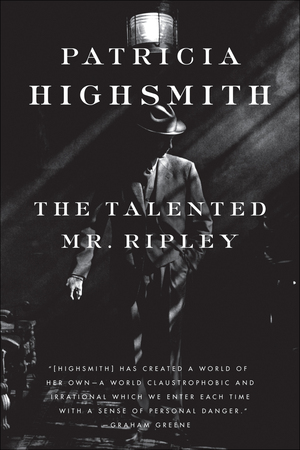The Talented Mr. Ripley: A Thrilling Journey into the Mind of a Murderer
Introduction:
Hello, dear readers. I’m Fred Wilson, a blog writer who is passionate about exploring the dark side of human nature. I love to delve into the minds of fictional characters who commit heinous acts and try to understand what makes them tick. Today, I have chosen to write about The Talented Mr. Ripley, a 1999 psychological thriller film directed by Anthony Minghella and based on Patricia Highsmith’s 1955 novel of the same name.
The film follows the story of Tom Ripley, a young and talented con artist who is hired by a wealthy businessman to bring back his son, Dickie Greenleaf, from Italy. However, Ripley becomes obsessed with Dickie and his lavish lifestyle, and eventually murders him and assumes his identity. Along the way, he also kills other people who threaten to expose his deception and lies.
In this article, I will analyze Ripley’s personality, motives, and behavior in relation to his crimes and how he rationalizes them. I will also discuss how the film portrays Ripley as a complex and fascinating character who represents the dark side of human nature.
Ripley’s Background and Impersonation Skills
Tom Ripley is a young man who grew up in a poor and abusive environment. He never had a stable family, education, or career. He lacked social skills, ambition, and self-esteem. He was an underachiever who felt inferior and inadequate. He had no sense of identity or purpose in life.
However, Ripley also had a remarkable talent for lying, manipulating, and impersonating others. He could forge signatures, imitate voices, and mimic behaviors. He could adapt to any situation and blend in with any crowd. He was a master of deception and disguise.
Ripley’s impersonation skills came in handy when he met Dickie Greenleaf, a rich and spoiled playboy who was living in Italy with his fiancée, Marge Sherwood. Ripley was hired by Dickie’s father, Herbert Greenleaf, to persuade Dickie to return to America and take over the family business. Ripley pretended to be a former classmate of Dickie at Princeton, even though he never attended the university. He also claimed to be a jazz enthusiast, a sailor, and a pianist, all to impress Dickie and gain his trust.
Ripley became fascinated by Dickie and his glamorous life. He wanted to be his friend, his lover, and his equal. He wanted to have his wealth, his lifestyle, and his identity. He wanted to be Dickie Greenleaf.
Ripley’s Motivation for Killing Dickie Greenleaf
Ripley’s obsession with Dickie soon turned into envy, resentment, and greed. He realized that Dickie was not the perfect person he had imagined. He was selfish, arrogant, and careless. He treated Ripley as a servant, a toy, and a nuisance. He was also unfaithful to Marge and had affairs with other women.
Ripley felt betrayed and hurt by Dickie’s rejection and indifference. He also felt threatened by Dickie’s plan to cut him off and end their friendship. He feared that he would lose everything he had gained by being close to Dickie. He decided that the only way to keep Dickie’s life was to take it away from him.
Ripley planned, executed, and covered up his murder of Dickie. He lured Dickie to a secluded boat, where he bludgeoned him to death with an oar. He then dumped his body into the sea and staged a fake suicide note. He also forged Dickie’s will and transferred his money and possessions to himself. He then assumed Dickie’s identity and moved to Rome, where he lived in his apartment and wore his clothes.

Ripley’s Behavior after Killing Dickie Greenleaf
Ripley’s life after killing Dickie was not as easy or enjoyable as he had hoped. He faced many challenges and dangers that threatened to expose his deception and lies. He had to deal with the police, the media, and Dickie’s friends and relatives, who were suspicious of his disappearance and death. He also had to maintain his impersonation of Dickie, which was not always consistent or convincing.
Ripley also became obsessed with Marge Sherwood, Dickie’s fiancée, whom he also seduced and lied to. He tried to recreate Dickie’s life with her, but he failed miserably. He could not satisfy her emotionally or sexually. He also could not escape his own guilt and remorse, which haunted him in his dreams and visions.
Ripley isolated himself from others and became paranoid and violent. He killed two more people who threatened to expose him: Freddie Miles, Dickie’s friend who recognized him as Ripley, and Peter Smith-Kingsley, a young man who fell in love with him and discovered his secret. He also attempted to kill Marge, but he was stopped by the police.
Ripley eventually fled from Italy and went to Greece, where he hoped to start a new life. However, he realized that he could never escape his past or his true self. He was trapped in his own web of lies and crimes.
Ripley’s Rationalization for His Actions and Emotions
Ripley justified his crimes as necessary means to achieve his goals or satisfy his needs. He believed that he deserved to have Dickie’s life, because he appreciated it more than Dickie did. He also believed that he was smarter and more talented than Dickie, and that he could do a better job of being him. He thought that he was doing Dickie a favor by killing him, because he was unhappy and bored with his life.
Ripley denied or minimized his guilt or remorse for his crimes. He convinced himself that he did not feel anything for his victims, because they were not his friends or lovers. He also convinced himself that he did not do anything wrong, because he was not caught or punished. He blamed his victims for their own deaths, because they provoked him or betrayed him. He also blamed the society for his crimes, because it was unfair and unjust to him.
Ripley rationalized his lies, betrayals, murders, and escapes as part of his survival and success. He viewed himself as a victim of his circumstances, who had to fight for his place in the world. He also viewed himself as a hero of his own story, who had to overcome many obstacles and enemies. He admired his own cunning and courage, and praised his own achievements and accomplishments.
Conclusion:
Tom Ripley is a complex and fascinating character who represents the dark side of human nature. He is a talented and charming con artist, who can manipulate and deceive anyone. He is also a ruthless and cold-blooded murderer, who can kill anyone. He is a master of impersonation and rationalization, who can become anyone and justify anything.
The Talented Mr. Ripley is a thrilling journey into the mind of a murderer, who challenges our moral and ethical values. It is a captivating exploration of the themes of identity, envy, and guilt. It is a masterpiece of psychological suspense and drama.
I hope you enjoyed reading this article and learned something new about The Talented Mr. Ripley and its protagonist. If you have any thoughts or comments on Ripley’s psychology, please share them with me in the comments section below. I would love to hear from you.












